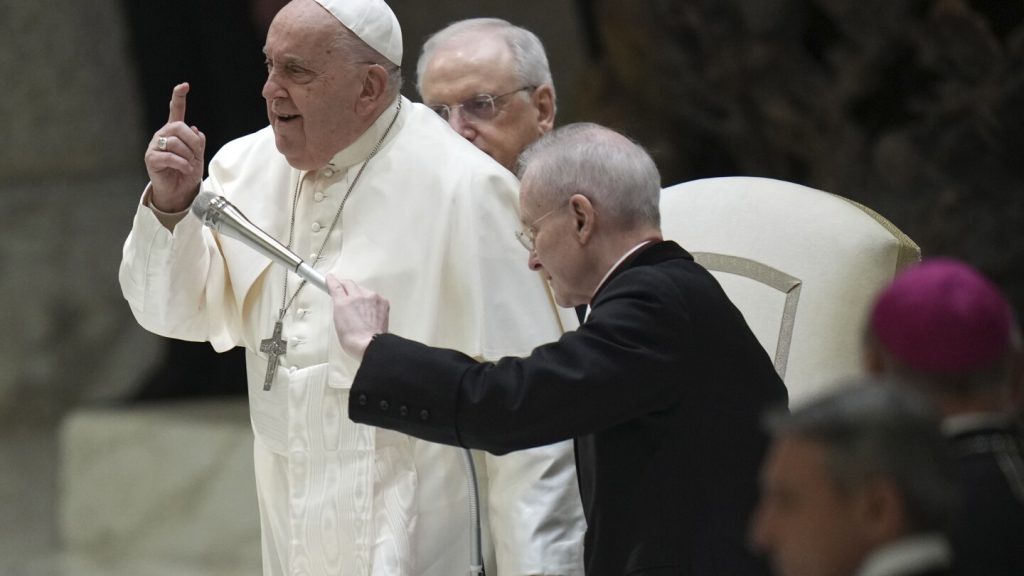In a speech delivered to Catholic educators in Vatican City, Pope Francis emphasized the detrimental effects of bullying in schools, stating that it prepares students for war rather than peace. Addressing a crowd of about 2,000 Italian teachers, educators, and parents, the pontiff urged them to pledge to combat bullying both in educational institutions and at home. Francis commended the efforts made by schools to promote peace, highlighting the importance of fostering a culture of peace through every subject taught and the creativity of children and young people. He emphasized that engaging in war-like behaviors such as bullying within the school environment sets the stage for conflict rather than fostering a peaceful coexistence.
The pope’s message centered on the importance of dialogue within families as a means of personal and societal growth. Reflecting on the role of dialogue in promoting understanding and empathy, Francis underscored its transformative power in shaping individuals and communities. By advocating for open communication and mutual respect within the family unit, the pontiff emphasized the significance of creating a nurturing and supportive environment in which individuals can flourish. This call for dialogue aligns with the pope’s broader message of building a more just and fraternal world, grounded in the principles of compassion and solidarity.
Francis’ speech resonated with educators and parents, who play a vital role in shaping the moral and ethical development of the next generation. By encouraging them to actively combat bullying and promote peace within schools and homes, the pontiff sought to instill a sense of responsibility and accountability in fostering a culture of respect and empathy. The pledge to fight against bullying serves as a collective commitment to creating safe and inclusive environments where students can thrive emotionally, socially, and academically. Through these efforts, the pope aims to cultivate a sense of peace and harmony that extends beyond the school walls and into the broader society.
The pope’s remarks come at a time when the issue of bullying has garnered increased attention globally, with educators and policymakers grappling with how to address this pervasive problem. By drawing attention to the link between bullying and the perpetuation of violence, Francis highlights the urgent need to confront and eradicate harmful behaviors that undermine the fabric of society. His call for dialogue and active intervention underscores the proactive stance needed to combat bullying effectively, emphasizing the role of education in fostering a culture of respect and understanding. As educators and parents heed the pope’s call to action, they are poised to make a meaningful impact in creating a more peaceful and equitable world for future generations.
In conclusion, Pope Francis’ message against bullying serves as a powerful reminder of the profound impact of harmful behaviors on individuals and society as a whole. By urging educators, parents, and students to reject violence and embrace dialogue, the pontiff underscores the transformative power of compassion and empathy in building a more just and peaceful world. Through his speech in Vatican City, Francis not only condemns bullying as a precursor to conflict but also calls for a collective commitment to promoting peace and understanding within schools and homes. As communities rally together to confront the scourge of bullying, they have the opportunity to sow the seeds of a more harmonious and compassionate society, guided by the principles of respect, empathy, and solidarity.


